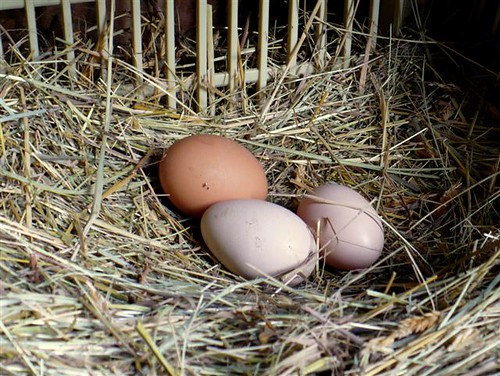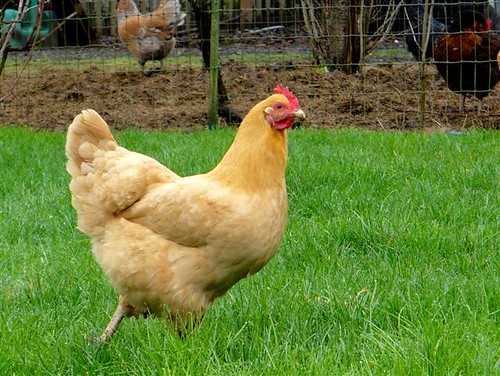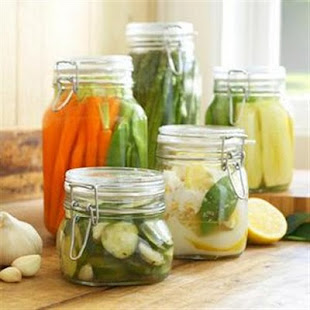
I know the basics: good poultry feed; 14-16 hours of light; shelter; all the stuff that we normally provide. So what would be the difference this year?
Well for one, I had slipped into the habit of buying an all-purpose 14% feed. Definitely not the protein or calcium that laying hens need. So two weeks ago, I updated their feed and have made a commitment to always have their feeder topped off so they are not tempted to forage so much and dilute their diet.
We have been running a light on a timer all winter with a few hours in the morning and a few more hours in the evening totaling 14 hours. But I may have stumbled upon something out of curiosity the other day. Online sources I referenced made mention of providing light obviously but some went so far as to suggest red or orange bulbs that would provide more of the natural spectrum light they need. Being lazy I just stuck in a regular light bulb in their house without a thought this fall. I'm beginning to wonder if it was not providing enough of the right type of light for them. In other years I have run a red heat lamp and have had great laying as mentioned above throughout the winter months.

Other than these two changes, there isn't much more I can do I suppose. Fresh water is out all the time. They have a fantastic house to roost in. Nice laying boxes filled with hay which they prefer to shavings. Satin pillows perhaps? Soothing music? It has been two weeks since the feed change and just this week with the new light. So I'm anticipating some eggs here real soon. The kids are anxiously waiting to feast on raw cookie dough again!
 |

.jpg)






.jpg)





.jpg)



